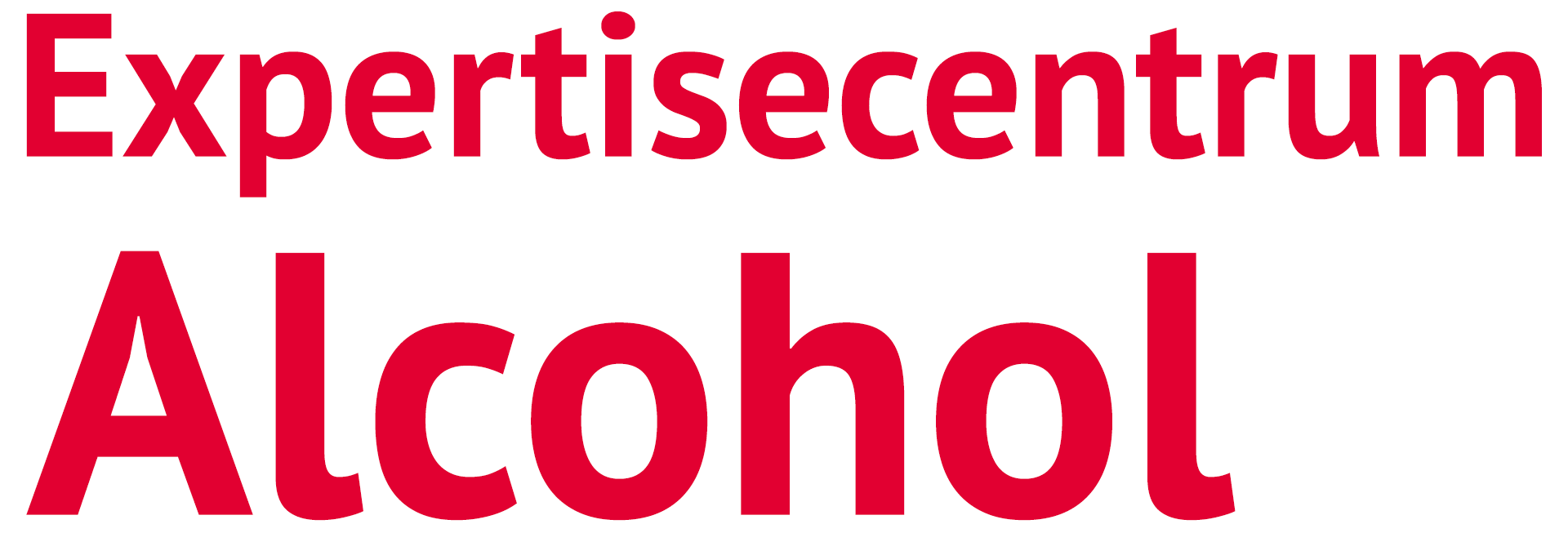Mensen die zwaar drinken hebben vaker een depressie. En andersom drinken mensen met een depressie ook vaak veel. Het is nog niet precies bekend hoe dit komt, maar we weten wel welke factoren hier invloed op kunnen hebben. Het is belangrijk om de combinatie van depressie en problematisch alcoholgebruik snel aan te pakken om de kwaliteit van leven te verbeteren.
Expertisecentrum Alcohol
Deze pagina is gemaakt door het Expertisecentrum Alcohol. Met wetenschappelijke kennis helpt het expertisecentrum professionals gezondheidsschade door alcohol terug te dringen. Op zoek naar informatie voor jezelf of een ander? Kijk op alcoholinfo.nl.
Blijf op de hoogte
Met de nieuwsbrief van het Expertisecentrum Alcohol:
Heeft u een vraag?
Stuur ons een mail
Definitie van depressie (DSM-5)
Een depressie is een stemmingsstoornis, waarbij gedurende minimaal twee weken sprake is van een aantal verschillende symptomen, waaronder in ieder geval een sombere stemming of verlies van interesse of plezier, zonder lichamelijke oorzaak.
Andere symptomen van depressie
- Gewichtsverlies of –toename
- Slaapproblemen
- Door anderen waarneembare onrust
- Vermoeidheid
- Gevoelens van waardeloosheid
- Buitensporige of onterechte schuldgevoelens
- Verminderd vermogen tot nadenken of concentreren
- Besluiteloosheid
- Terugkerende gedachten aan de dood
Deze symptomen veroorzaken een grote lijdensdruk en beperkingen in het sociale leven en op het gebied van werk. Zie voor een volledige beschrijving van de criteria de DSM-5 [1].
Samenhang alcoholproblematiek en depressie
Alcohol kan een opwekkende werking hebben, waardoor mensen zich even vrolijker en minder gespannen of gestrest voelen. Sombere of depressieve gevoelens lijken dan voor een kort moment verdwenen. Maar door de alcohol kan de depressie daarna juist erger worden. Als reactie daarop drinken mensen soms nog meer, om hun depressieve gevoelens te onderdrukken. Zo kan een neerwaartse spiraal ontstaan waar niet of moeilijk uit is te komen.
De relatie tussen problematisch alcoholgebruik en depressie is complex. Volgens meerdere studies komt een depressie bij zware drinkers vaker voor dan in de algemene bevolking [2-5]. Een recente studie in de algemene bevolking laat echter zien dat alcoholgebruik geen voorspeller is voor langdurige depressie bij mensen die al kampen met een depressie [6]. Een aanwezige depressie vergroot wel de kans op problematisch alcoholgebruik en alcoholafhankelijkheid in de toekomst [7-9], mede door het gebruik van alcohol als ‘zelfmedicatie’ [10]. Dat wil zeggen dat het drinken van bier, wijn of sterke drank wordt gebruikt om de klachten te verminderen en om te gaan met de symptomen van de depressie. Alcoholafhankelijkheid komt dan ook drie keer vaker voor bij mensen met een depressie in vergelijking met mensen zonder depressie [11]. Daarnaast geeft een recente studie aanwijzingen voor een relatie tussen alcoholafhankelijkheid op 18-jarige leeftijd en depressie op 24-jarige leeftijd [12]. Bovendien zorgt alcoholafhankelijkheid voor een slechter verloop van de depressie [13, 14].
Risicofactoren
Er is nog geen oorzaak-gevolg relatie aangetoond tussen problematisch alcoholgebruik en een depressie. Ook is er niet één bepaalde onderliggende factor gevonden die kan verklaren waarom ze vaker samen voorkomen [15-18].
Er zijn wel een aantal factoren aan te wijzen die meer risico geven op zowel een depressie als problematisch alcoholgebruik:
- Persoonskenmerken (verminderde zelfwaarde)
- Sociale omgevingsfactoren (ontbreken van sociale steun)
- Stressvolle factoren, zoals spanningen in het gezin of op het werk
Deze factoren hebben een cumulatief effect (ze tellen bij elkaar op). Hoe meer risicofactoren, hoe groter de kans op een combinatie van depressie en verslaving [19,20].
Genetische studies laten wel een positief verband zien tussen depressie en alcoholafhankelijkheid [21, 22]. Maar over de mechanismen die ten grondslag liggen aan het samen optreden van depressie en alcoholafhankelijkheid is nog veel onbekend.
Vroegtijdige signalering en behandeling
De kwaliteit van leven wordt ernstig negatief beïnvloed door de combinatie van alcoholmisbruik en een depressie, zelfs meer dan bij de combinatie van problematisch alcoholgebruik met andere psychische problemen [20]. Vroegtijdige signalering en behandeling van alcoholproblematiek en depressie kan de kwaliteit van leven verbeteren [23].
Bij de behandeling van mensen met zowel problematisch alcoholgebruik als een depressie is de beste optie om eerst het alcoholgebruik aan te pakken [24], zoals ook beschreven staat in de ggz-standaard problematisch alcoholgebruik.
In de ggz-standaard depressieve stoornissen wordt geadviseerd 4-6 weken geen alcohol te drinken (abstinentie) voor het behandelen van de depressie. Als volledige abstinentie niet haalbaar blijkt doordat de verslaving in stand wordt gehouden door de depressie, kan ervoor gekozen worden om te starten met de behandeling van de depressie om zo ook de verslaving aan te pakken. Het is nog onduidelijk wat de meest effectieve behandeling is van de comorbide problematiek (het samengaan van problematisch alcoholgebruik en een depressie) [25].
Verder zijn er aanwijzingen dat digitale interventies kansrijk kunnen zijn voor mensen met zowel een alcoholstoornis als een depressie. Om hier met meer zekerheid uitspraken over te kunnen doen, moet er meer onderzoek gedaan worden [26].
Links
- Factsheet - Alcohol and depression
In deze Engelstalige factsheet van Alcohol Concern wordt de samenhang tussen alcohol en depressie toegelicht. - Ggz-standaard problematisch alcoholgebruik
De behandeling van problematisch alcoholgebruik die samengaat met een depressie wordt kort beschreven.
Referenties
- American Psychiatric Association (2014). Handboek voor de classificatie van psychische stoornissen DSM-5. Nederlandse vertaling van Diagnostic and Statistical Manual of Mental Disorders, 5th ed. Amsterdam: American Psychiatric Association p/a Uitgeverij Boom.
- Fergusson D.M., Boden J.M., Horwood L.J. (2009). Tests of causal links between alcohol abuse or dependence and major depression: Arch Gen Psychiatry 2009; 66:260-6.
- R. Conner, M. Pinquart, S. Gamble (2009). Meta-analysis of depression and substance use among individuals with alcohol use disorders, Journal of Substance Abuse Treatment, (2009), Vol 37, pp. 127 – 137.
- Mental Health Foundation (2006). Cheers? Understanding the relationship between alcohol and mental health, 2006, pp. 1 – 40.
- Lai, H.M.X., Cleary, M., Sitharthan, T., & Hunt, G.E. (2015). Prevalence of comorbid substance use, anxiety and mood disorders in epidemiological surveys, 1990-2014: A systematic review and meta-analysis. Drug and alcohol dependence, 154, 1–13. Ireland.
- Schouten, M. J., Ten Have, M., Tuithof, M., de Graaf, R., Dekker, J. J., Goudriaan, A. E., & Blankers, M. (2023). Alcohol use as a predictor of the course of major depressive disorder: a prospective population-based study. Epidemiology and psychiatric sciences, 32, e14.
- Dixit, R. Crum (2000). Prospective study of depression and the risk of heavy alcohol use in women, American Journal of Psychiatry 2000, Vol 157, pp. 751 - 758.
- Sullivan et al (2005). The prevalence and impact of alcohol problems in major depression: a systematic review, The American Journal of Medicine, 2005, Vol 118, pp. 330 - 341.
- Boschloo, L., Vogelzangs, N., van den Brink, W., Smit, J. H., Veltman, D. J., Beekman, A. T. F., & Penninx, B. W. J. H. (2013). Depressive and anxiety disorders predicting first incidence of alcohol use disorders: results of the Netherlands Study of Depression and Anxiety (NESDA). The Journal of clinical psychiatry, 74(12), 1233–1240. United States.
- Turner, S., Mota, N., Bolton, J., & Sareen, J. (2018). Self-medication with alcohol or drugs for mood and anxiety disorders: A narrative review of the epidemiological literature. Depression and Anxiety 35 (9): 851–860.
- Grant, B.F., Harford TC (1995). Comorbidity between DSM-IV alcohol use disorders and major depression: Results of a national survey, Drug and Alcohol Dependence, 1995, Vol 39 (3), pp. 197 – 206.
- Hammerton, G., Lewis, G., Heron, J., Fernandes, G., Hickman, M., & Lewis, G. (2023). The association of alcohol dependence and consumption during adolescence with depression in young adulthood, in England: a prospective cohort study. The Lancet Psychiatry.
- Boschloo, L., Vogelzangs, N., Brink, W. Van Den, Smit, J. H., Veltman, D. J., Beekman, A. T. F., & Penninx, B. W. J. H. (2012). Alcohol use disorders and the course of depressive and anxiety disorders, 476–484.
- Angold A., Costello E.J., Erkanli A. (1999) Comorbidity. J Child Psychol Psychiatry 1999; 40: 57-87.
- Conner K.R., Pinquart M., Gamble S.A. (2009). Meta-Analysis of depression and substance use among individuals with alcohol use disorders. Subst Abuse Treat 2009; 37:127-37.
- Swendsen J.D., Merikangas KR. (2000). The comorbidity of depression and substance use disorders. Clin Psychol Rev 2000; 20:173-89.
- Roberts R.E., Roberts C.R., Chan W. (2009). One-year incidence of psychiatric disorders and associated risk factors among adolescents in the community. J Child Psychol Psychiatry 2009; 50: 405-15.
- Jiande Li, Hongxuan Wang, Mei Li, Qingyu Shen, Xiangpen Li, Yuanpei Zhang, Jialing Peng, Xiaoming Rong, Ying Peng (2019). Effect of alcohol use disorders and alcohol intake on the risk of subsequent depressive symptoms: a systematic review and meta‐analysis of cohort studies. Addiction Vol 115, Issue7, Pages 1224-1243 https://doi.org/10.1111/add.1493
- Petrakis, I.L., Gonzalez G, Rosenheck R, Krystal JH. (2002). Comorbidity of alcoholism and psychiatric disorders. An overview. Alcohol Res Health 2002; 26: 81-9.
- Levola, J., Aalto, M., Holopainen, A., Cieza, A., & Pitkanen, T. (2014). Health-related quality of life in alcohol dependence: a systematic literature review with a specific focus on the role of depression and other psychopathology. Nordic journal of psychiatry, 68(6), 369–384. England.
- Polimanti R et al (2019). Evidence of causal effect of major depression on alcohol dependence: findings from the psychiatric genomics consortium. Psychological Medicine 49, 1218–1226. https://doi.org/10.1017/S0033291719000667
- Sanchez-Roige S, Palmer AA, Fontanillas P, et al. (2019). Genome-Wide Association Study Meta-Analysis of the Alcohol Use Disorders Identification Test (AUDIT) in Two Population-Based Cohorts. Am J Psychiatry. 2019;176(2):107-118. https://doi.org/10.1176/appi.ajp.2018.18040369
- Pavkovic B, Zaric M, Markovic M, Klacar M, Huljic A, Caricic A. (2018). Double screening for dual disorder, alcoholism and depression. Psychiatry Res. 2018 Dec;270:483-489.
- NHG-Standaard Problematisch alcoholgebruik - derde herziening (2014).
- Hobden B, Bryant J, Carey M, Baker AL, Farrell M, Oldmeadow C, Mattick RP, Shakeshaft A, Sanson-Fisher R. (2018) Finding the optimal treatment model: A systematic review of treatment for co-occurring alcohol misuse and depression. Aust N Z J Psychiatry. 2018 Aug;52(8):737-750. doi: 10.1177/0004867418758922.
- Schouten, MJ E , Christ C, Dekker, J J M, Riper, H, Goudriaan, A, Blankers , M E (2021). Digital Interventions for People With Co-Occurring Depression and Problematic Alcohol Use: A Systematic Review and Meta-Analysis, Alcohol and Alcoholism, 2021;, agaa147, https://doi.org/10.1093/alcalc/agaa147.


